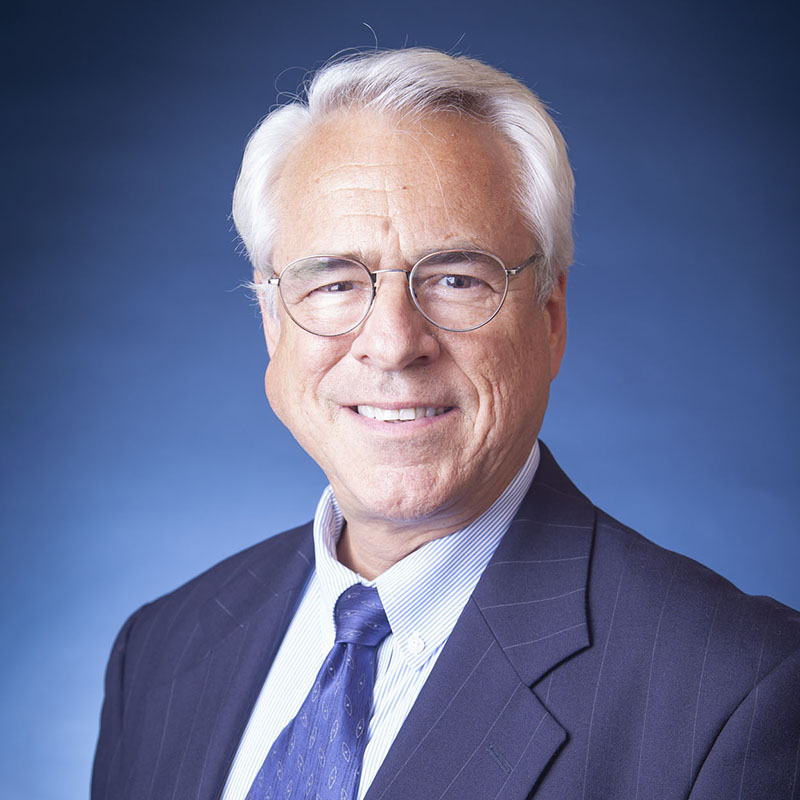Samuel faithfully served God and the nation of Israel as it transitioned from the time of judges to the rule of kings. What can we learn from his leadership?

Young Samuel was placed under the care and training of Eli, the priest and judge of Israel at that time.
Toward the end of the period of the judges of Israel, the roughly 300 years between Joshua and King Saul, God began preparing a child who would have profound leadership skills and spiritual steadfastness to judge Israel. After Samuel began serving as judge, he continued in this role “all the days of his life” (1 Samuel 7:15). He also served as a teacher and prophet.
Samuel’s birth: an answered prayer
The story of Samuel’s life begins with the very touching scene of Hannah, a wife of Elkanah, praying to God at the tabernacle in Shiloh. She was pleading with God to allow her to bear a son because she was barren. Elkanah was a Levite of the region of Ephraim. His other wife, Peninnah, was able to bear several children, and she made Hannah’s life miserable (1 Samuel 1:4-6, 10).
Hannah made a vow to God that if He would allow her to bear a son, she would give the boy to the service of God all the days of his life (verse 11). Some time passed and God answered Hannah’s prayer. She conceived and bore a son, calling his name Samuel, saying, “Because I have asked for him from the Lord” (verse 20).
What does Samuel mean?
“The word Samuel . . . is a contraction of the words . . . Shaul meEl, that is, asked or lent of God” (Adam Clarke Commentary, 1 Samuel 1:28). Some suggest Samuel’s name means “heard of God,” since God had heard Hannah’s prayer. It seems that Samuel’s mother was thinking of the meaning of her son’s name as she told the priest at Shiloh: “For this child I prayed, and the LORD has granted me my petition which I asked of Him. Therefore I also have lent him to the LORD; as long as he lives he shall be lent to the LORD” (verses 27-28).
Samuel’s first revelation from God
After Samuel was weaned from his mother, he was placed under the care and training of Eli, the priest and judge of Israel at that time (1 Samuel 1:9; 4:18). In addition to teaching Samuel about God and His instructions, Eli gave the child Samuel light duties around the tabernacle, such as opening its doors (1 Samuel 2:18; 3:15).
It was during this time when Samuel was still a child that God began to speak to him. Samuel’s first message from God was quite sobering and was to be delivered to Eli, the aging leader of Israel. Samuel was to announce God’s punishment on Eli’s two wayward sons, Hophni and Phinehas, who were abusing their priestly authority over the people and desecrating the sacrificial offerings (1 Samuel 2:27-34; 3:2-18).
God also severely reprimanded Eli for his tolerance of his sons’ behavior. Because of the disrespect shown to God, God told Eli that his descendants would die in “the flower of their age” and that He would choose another family to serve in the priestly line (1 Samuel 2:33-35). The prophecy—“then I will raise up for Myself a faithful priest … and he shall walk before My anointed forever” (verse 35)—apparently referred to Zadok (1 Kings 2:27, 35).
Samuel’s role as prophet
As Samuel grew and faithfully conveyed messages from God, it became obvious that God was working through him. “And all Israel from Dan to Beersheba knew that Samuel had been established as a prophet of the LORD” (1 Samuel 3:20, emphasis added throughout). Samuel was also referred to as a “seer” (1 Chronicles 9:22), another name for prophet. A seer meant one who sees, as in one who receives God’s revelation.
As Samuel grew and faithfully conveyed messages from God, it became obvious that God was working through him.
The people of Israel consulted Samuel on difficult subjects (1 Samuel 9:6-10), and the elders trembled before him as the representative of God’s authority (1 Samuel 12:18; 16:4-5). Yet in his great concern for the nation, at times he would be in deep intercessory prayer for them (1 Samuel 7:7-8; 15:11).
Years later, God cited Samuel along with Moses as leaders of the Israelites whose prayers for mercy for the people He had often heeded. As time passed, the sins of the Israelites became so egregious that God told Jeremiah, “Even if Moses and Samuel stood before Me, My mind would not be favorable toward this people. Cast them out of My sight, and let them go forth” (Jeremiah 15:1).
Samuel’s role as teacher
Although the biblical record is scant, it seems that Samuel may have founded a center or school at Ramah to train young men in prophetic service (Pulpit Commentary, 1 Samuel 19:18-19). Later, during the time of Elijah and Elisha, schools existed at Bethel and Jericho (and possibly Gilgal) where these studious men were called “the sons of the prophets” (2 Kings 2:1-7, 15; 4:38).
The training of these religious leaders was to serve as a barrier against corruption and to protect the nation by furnishing it with men qualified to act as leaders and counselors in the fear of God. “Prophets spoke the word of God. They were primarily spokespersons who called His people to obedience” (Holman Bible Dictionary, “Prophet”).
At times God had His prophets fulfill additional duties such as anointing future kings and working with them. Samuel was the instrument God used to anoint the first two physical kings of Israel, Saul and then David (1 Samuel 9:15-16; 16:1). Samuel cared for Saul and served as an instructor to him in his early years of kingship (1 Samuel 9:25; 10:25). Later, when Saul overstepped his kingly authority and disregarded God’s commands, God spoke through Samuel to tell Saul that he was rejected as king over Israel (1 Samuel 15:26).
God then sent Samuel to anoint young David to be Israel’s next king. For a number of years David was close to Samuel, able to learn from his guidance and experience (1 Samuel 19:18).
Samuel’s role as judge
Another of Samuel’s leadership roles was that of chief judge of Israel after Eli, his predecessor, died.
Much earlier, in the time of Moses, God established the office of judge. Moses served as a judge of Israel, deciding cases between people and teaching God’s statutes (Exodus 18:16; Numbers 11:16). Under this system, there would be a chief judge and appointments of local judges for the towns and cities of Israel (Exodus 18:21-22).
During the period of the judges, a judge was often a military champion or a deliverer that God would appoint to win victories over Israel’s enemies. Some familiar military judges included Joshua, Gideon, Deborah and Samson.
Samuel fulfilled a more general sense of a judge, being a person carefully selected by God for his integrity and skill to decide legal cases for the people. Samuel served as a judge who focused on teaching and administering justice (Holman Bible Dictionary, “Judge”).
Samuel calls the nation to repentance
A principle that is repeated time and again in the period of the judges can be found when Samuel explains to the people of Israel that they must put away their false idols and faithfully turn their hearts back to God. The ancient Israelites generally forsook their one true Protector and Provider until they faced a crisis.
On one occasion, the Philistines attacked Israel, and 30,000 of Israel’s foot soldiers died (1 Samuel 4:10). Then God allowed the most holy object in all of Israel, the Ark of the Covenant, to be taken by the Philistines (1 Samuel 4:11).
Samuel then advised them: “If you return to the LORD with all your hearts, then put away the foreign gods and the Ashtoreths [Canaanite goddesses] from among you, and prepare your hearts for the LORD, and serve Him only; and He will deliver you from the hand of the Philistines” (1 Samuel 7:3). Only then would God secure their land and give them protection from their enemies.
Samuel gathered the people, and they fasted that day, repenting of their sins. Then Samuel prayed on behalf of all the people.
The outcome was that God gave them a miraculous victory over the enemy (1 Samuel 7:5-6, 9-10).
This principle stands just as true today for a nation that turns wholeheartedly to the one true God. Study more about the role of a prophet to call people to repentance in our article “Purpose of Prophecy.”
Samuel’s example
Samuel labored throughout his life for the welfare of his people and served as Israel’s last judge before the people asked for a monarchy. The biblical record shows that although there were battles and some losses by Israel’s armies, overall, the nation survived and flourished under the leadership of Samuel.
Eventually, order was established, godliness was promoted, and the nation was at peace and prospered. “So the Philistines were subdued, and they did not come anymore into the territory of Israel. And the hand of the LORD was against the Philistines all the days of Samuel. Then the cities which the Philistines had taken from Israel were restored to Israel, from Ekron to Gath; and Israel recovered its territory from the hands of the Philistines. Also there was peace between Israel and the Amorites” (1 Samuel 7:13-14).
Samuel’s life serves as an example for believers today. Key principles include his obedience to God from the time he was a youth, his faith (Hebrews 11:32) and his willingness to intercede for others (Jeremiah 15:1).
Samuel conjured up by a medium?
A few years after Samuel’s death, the Philistines gathered their armies to fight against Israel. Saul, the king of Israel at the time, had long before rejected God, but now he was afraid and tried to inquire of Him what to do.
When God didn’t answer, out of desperation Saul foolishly decided to consult a medium (1 Samuel 28:6-7). This was something God had specifically told the Israelites not to do.
Moses reminded the people of this prior to their entering Canaan, saying, “There shall not be found among you anyone who makes his son or his daughter pass through the fire, or one who practices witchcraft, or a soothsayer, or one who interprets omens, or a sorcerer, or one who conjures spells, or a medium, or a spiritist, or one who calls up the dead” (Deuteronomy 18:10-11).
Reflecting his disobedience to God, Saul chose to consult a medium anyway. In this account Saul asked the medium—a woman living at En Dor—to bring up Samuel from the dead, so he (Saul) could speak with him.
Although Saul “perceived” that he was talking with Samuel in this séance (1 Samuel 28:14), we have to remember that the biblical teaching on death shows that this was not real. This séance was simply an illusion that was likely orchestrated by an evil spirit or spirits.
Several scriptures explain that dead people are not able to come out of their graves to speak to people who are alive. Ecclesiastes 9:5 says that “the dead know nothing.” Verse 10 adds that “no work” can be done by people who are in the grave. Reflecting the fact that the dead have no conscious thoughts, Psalm 6:5 says, “For in death there is no remembrance of You [God].”
For more on what kind of spirit is behind practices such as the séance by the witch at En Dor, see our article “Fighting the Works of the Flesh: Witchcraft.”





